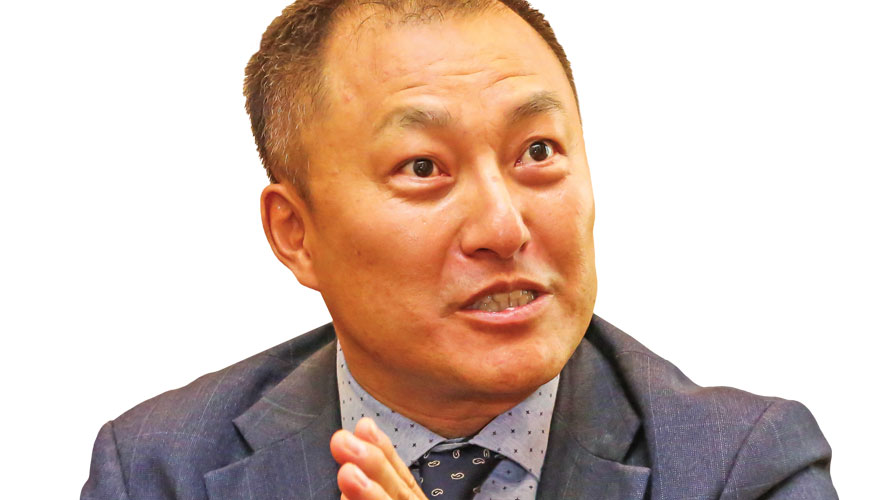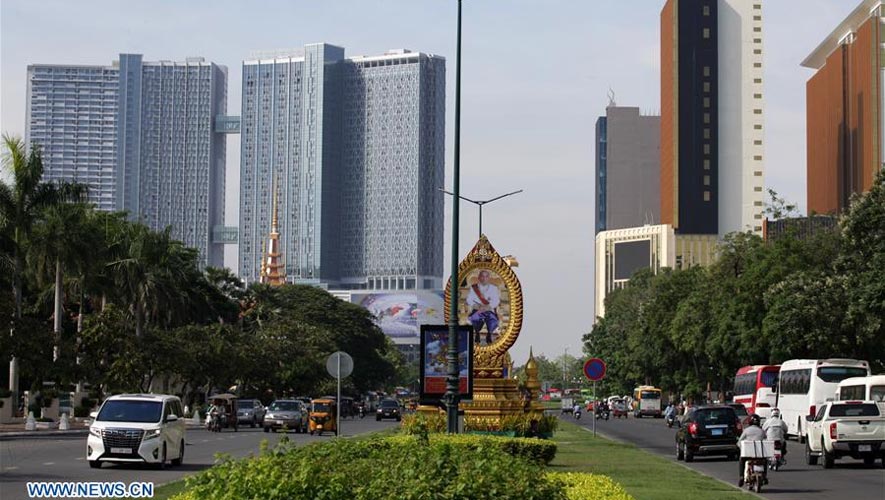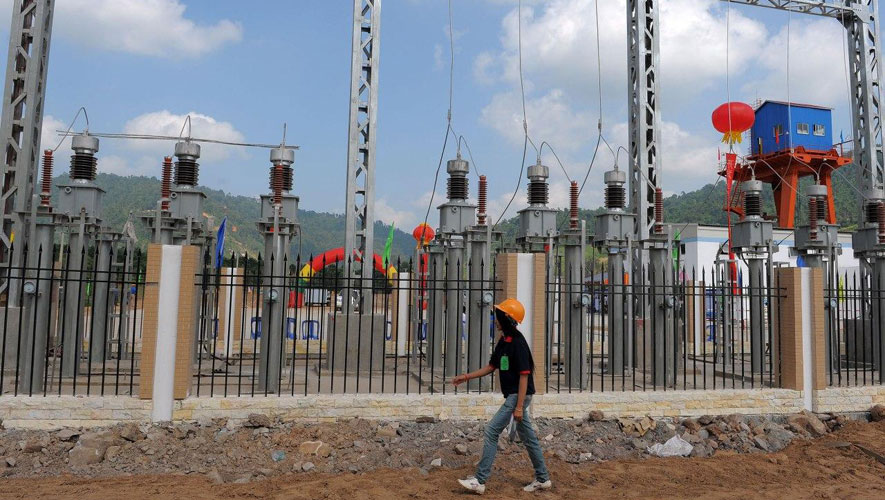Cambodia’s economic growth remained robust, underpinned by solid export performance and strong domestic demand in 2019, according to the World Bank’s latest report.
For the latest Cambodian Business news, visit Khmer Times Business
It says the Kingdom’s real growth in terms of gross domestic product (GDP) is expected to have decelerated to 7 percent in 2019. However, it says a possible withdrawal of the Everything But Arms (EBA) trade deal, as well as a sharp slowdown in the Chinese economy (a potential outcome of continued US-China trade tensions), could substantially dampen Cambodia’s growth prospects in 2020.
What do the analysts say about the country’s economic performance in 2020? What will GDP be? Will more foreign direct investments pour into the country? Will more tourists flock to the Kingdom Of Wonders’ shores? Will there be more export and import deals? Ultimately, will the population have more money in their wallets and purses?
Ken Loo, secretary-general of the Garment Manufacturers Association in Cambodia (GMAC), says that the garments exports for the first nine months of 2019 grew 12 percent. This was on the back of strong growth in the US market while exports to the EU were almost flat.
“The performance of our sector going into 2020 will depend very much on the outcome of the decision of the EU with regards to EBA. If EBA is retained, our sector should be able to continue to experience growth,” Ken adds.
“We should continue to see a revival in the exports to the USA. Our exports should continue to experience decent growth there,” he says.
Ken adds that every year garment industries continue to have new foreign direct investment (FDI) coming to Cambodia. “We expect to see more investors in both garment and travel goods next year,” he notes.

Improving productivity
He says going forward we will continue to focus on improving productivity and efficiency in our industry. We must continue to invest more in training and skills-upgrading for our workers. We urge all stakeholders to work together to ensure that our sector continues to thrive even when facing difficulties and increasing challenges.
Concerning the trade sector, Lim Heng, vice-president of Cambodia Chamber of Commerce, said the growth rate of imports and exports will remain strong in Cambodia in 2020 because there are more new businesses registered in the Kingdom in 2019.
He said the country’s real gross domestic products will remain at percent growth by 2020. “We will soon have the Free Trade Agreement (FTA) with China, Asean-China FTA, Asean-Korea FTA and Asean-Japan FTA,” Lim adds.
Lim says in 2019 we saw an increase in business registrations, rising more than 20 percent, and this will continue to rise. At present, more FDIs are pouring into all sectors. He added that the growth of real estate, construction in general and agriculture are also on the rise.
“Now, the government is amending investment laws and the laws on special economic zones, and other internal reforms. It’s reducing paperwork to facilitate trade and make it more attractive,” he says.
“Our local production to supply the markets is still low, so if there are more imports, there will be more exports. Now, imports are higher than exports, but previous exports and current exports are different. At present, exports and imports are both increasing, so the scale is different, but our local market purchasing power is strong so investors want to invest here,” says Lim.

Finance sector
The performance of the financial sector will also exhibit strong growth. It is because of the country’s peace and political stability and macro-economics, says In Channy, president and group managing director of ACLEDA Bank and the president of the Association Bank of Cambodia (ABC). He adds that the performance in 2019 was good.
In says that for Acleda Bank alone, the total loan portfolio was $3.7 billion, as much as a 7 percent increase, while deposits were $4.2 billion – a 12 percent increase– with customer levels at 2.3 million. There were 402,000 customers with loans as of Dec 30, 2019. He says the non-performing loan rate was 1.2 percent.
“In 2020, we foresee that the outstanding loans and deposits will increase around 10 percent and 12 percent respectively. This growth is based on overall economic growth, peace and stability. Thus, our growth plan is dependent on the economic growth of Cambodia,” In adds.
When asked about the effects on the financial sector if the EBA deal is withdrawn, he points out Acleda Bank is a retail bank, so its growth will be connected with the small and medium enterprises sector which are in demand now.
“Our market is not only the 16 million population in Cambodia, but also the 600 million population in Asean. The operation of the bank will not look at the local market alone, but the Asean market as a whole. Digital infrastructure in Cambodia is also upgrading to connect to the region,” he says, adding this will bring economic benefits.
Thus, when they (investors) want to invest in Cambodia, they will invest and conduct business in Asean to serve the customers there and beyond. Therefore, more and more investors are coming to the Cambodia market because they will not think only of the 16 million population but of the more than 600 million population in the region, according to In.

Stock exchange
If we take a look closer to the Cambodia Securities Exchange (CSX) in 2019, it shows that it performed well in 2019. According to the report from the CSX, daily average trading was $73.55 million in the first 11 months of 2019, while it was only $2.92million in the same period in 2018.
The all-time high for the CSX index was 870.65 points on Oct 1, 2019. However, in the first 11 months of 2019, the average market index was 777.66 points. The market capitalisation in first 11 months of 2019 was $716.07 million from $358.67 million in the same period in 2018.
“Our mission in 2020 is to find a tech company to join the stock market,” said Ha Jong Weon, vice-chairman and chief operations officer of the CSX. “We would like to see our securities market to be a strong platform that can find some good companies,” he adds.
“In 2020, I guess for the maiboard, two companies can be listed. For the growth board, two or three can be listed on our exchanges. So a total of five companies can be listed on our exchanges. More than seven companies would like to issue bonds in 2020. Two bond issuers will be from manufacturing companies. Separately, five more companies also would like to issue equity in the market,” Jong Weon adds.
Need government support
The strong economic growth is very important for the securities market because many investors are thinking that Cambodia has a lot of potential, so it is attracting many foreign investors to invest here. Strong economic growth is the basic condition for this, he adds.
“We need the some government support. I would like the government to make some policy to support our securities market. The government has to be encouraging or order the financial institutions to list in the securities exchanges. They have to issue equity in the market. I need this kind of policy,” Jong Weon adds.
“Every securities markets has fluctuating stock prices because every country experiences economic turbulence. The United States is also the same, especially over worries about the trade war with China [although US President Donald Trump has announced he will sign a long-awaited trade agreement with China on Jan 15]. Cambodia is also concerned about the EBA deal. Our market fluctuates, which shows our securities market is working very well. Investors have to understand economic information and how it affects share prices,” said Jong Weon.
In other words, investors have to cope with a lot of information and they have to have te ability to analyse news and government policies – how those policies affect them. Thus, they have to have more knowledge about the securities market.
Ministry of Tourism spokesman Top Sopheak said the ministry has already prepared some strategic plans for 2020 to attract more international tourists to visit Cambodia, especially main tourism destination Siem Reap province.
“We expect that the international tourists will increase between 10 to 15 percent. We expect it will be shown there were 6.6 million in 2019 and we predict 7 million foreign tourists in 2020,” he added.
“We are now building and strengthening the capacity to cope with the increase and strengthening the quality of products, services and creating new tourism products to encourage tourists to stay longer and we are expanding the promotion of tourism, especially online. We are also working with all stakeholders to improve the tourism products in 2020,” Top said.
Prorect against risk

Mey Kalyan, senior adviser of the Supreme National Economic Council in Cambodia, said that besides the EBA, the situation is proceeding normally. We do not think there will be any emergencies. I believe the economy is going forward.
“If we put in much effort, we will proceed fast. If not, we will move more slowly,” said Mey. “We have the basics and we know the issues, so our GDP will remain around 7 percent or slightly lower than 7 percent if the EBA remains as it is.
“But some issues are beyond the economy, so we cannot anticipate them. The EBA situation is not good news for society. Cambodia needs to push the country’s economy resilience.”
Mey adds the country has to build a comprehensive and strong economy and globalise it and not rely solely on the rest of the world. “We should diversify our products and boost local products to protect against risk and provide added-value to all stakeholders. We have to do more.”
What Cambodia has to do in the longer term is develop human resources and technology, improve the investment climate, modernise agriculture and protect the environment, he says. Developing science and technology are also important.
“We have to start with human resources, technology and infrastructure. We have to improve even better. If we are lacking infrastructure. We have to find a way to build the infrastructure and develop energy sources. We have to develop our human resources to accelerate more because our goal is to build peace.
“From 2020, we have to tighten our belts. It’s not business as usual for both the administration and the private sector. We should try to build the country,” Mey concludes.




